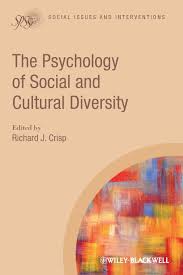Exploring the Intriguing Psychology of Social and Cultural Diversity

The Psychology of Social and Cultural Diversity
Embracing social and cultural diversity is not just a matter of tolerance; it is a psychological phenomenon that shapes our perceptions, attitudes, and behaviours. The interactions we have with individuals from different backgrounds play a crucial role in shaping our worldview and understanding of the world around us.
Psychologically speaking, exposure to diverse social and cultural environments can lead to cognitive flexibility, empathy, and open-mindedness. When we engage with people who hold beliefs and values different from our own, our cognitive processes are challenged, leading to personal growth and increased adaptability.
However, the psychology of social and cultural diversity also highlights the presence of biases and stereotypes that can influence how we perceive others. These biases are often rooted in our upbringing, experiences, and societal norms. Overcoming these biases requires self-awareness, introspection, and a willingness to challenge our preconceived notions.
Research in psychology has shown that exposure to diversity can enhance creativity, problem-solving skills, and overall well-being. By fostering inclusive environments that celebrate differences rather than marginalise them, we create opportunities for mutual learning and growth.
In conclusion, the psychology of social and cultural diversity underscores the importance of embracing differences as a means to foster personal development, social cohesion, and a more harmonious society. By recognising the value of diversity in all its forms, we pave the way for a more inclusive and empathetic world.
7 Essential Tips for Understanding the Psychology of Social and Cultural Diversity
- Embrace diversity as a source of strength and innovation.
- Be open-minded and curious about different cultures and perspectives.
- Practice empathy to understand others’ experiences and emotions.
- Challenge stereotypes and prejudices through education and awareness.
- Promote inclusivity by creating a welcoming environment for all individuals.
- Foster intercultural communication to build connections across diverse groups.
- Celebrate the richness of diversity by valuing each person’s unique identity.
Embrace diversity as a source of strength and innovation.
Embracing diversity as a source of strength and innovation is essential in fostering a dynamic and inclusive society. By valuing the unique perspectives, experiences, and talents that individuals from diverse backgrounds bring to the table, we create a rich tapestry of ideas and creativity. When different voices are heard and respected, innovative solutions emerge, leading to progress and growth on both personal and societal levels. Embracing diversity not only enriches our understanding of the world but also propels us towards a more collaborative and resilient future.
Be open-minded and curious about different cultures and perspectives.
To truly embrace the psychology of social and cultural diversity, it is essential to cultivate an open-minded and curious approach towards different cultures and perspectives. By maintaining a willingness to learn and explore the richness of diverse backgrounds, we not only expand our knowledge but also nurture empathy and understanding. Being open-minded allows us to challenge our own assumptions and biases, while curiosity drives us to engage with new ideas and experiences. Through this mindset, we can foster meaningful connections, promote inclusivity, and contribute to a more harmonious society where respect for diversity thrives.
Practice empathy to understand others’ experiences and emotions.
To truly grasp the significance of social and cultural diversity, it is imperative to cultivate empathy as a fundamental tool. By actively practising empathy, individuals can delve into the experiences and emotions of others, allowing for a deeper understanding of different perspectives and backgrounds. This empathetic approach not only fosters meaningful connections but also nurtures a sense of compassion and openness towards diverse cultures and societies. Embracing empathy as a guiding principle enables individuals to bridge gaps, break down barriers, and build inclusive communities founded on mutual respect and understanding.
Challenge stereotypes and prejudices through education and awareness.
To challenge stereotypes and prejudices through education and awareness is a crucial step towards fostering a more inclusive and understanding society. By actively seeking to educate ourselves and others about the harmful impact of stereotypes and prejudices, we can promote empathy, respect, and acceptance of diverse cultures and backgrounds. Through increased awareness, we can dismantle ingrained biases and work towards creating a more equitable and harmonious environment where individuals are valued for their unique identities rather than judged based on misconceptions.
Promote inclusivity by creating a welcoming environment for all individuals.
To promote inclusivity in the context of social and cultural diversity, it is essential to create a welcoming environment that embraces individuals from all backgrounds. By fostering a space where everyone feels valued, respected, and accepted, we encourage meaningful interactions and mutual understanding. This welcoming atmosphere not only enhances psychological well-being but also cultivates a sense of belonging and unity among diverse individuals. Ultimately, by prioritising inclusivity and creating an environment that celebrates differences, we contribute to building a more harmonious and cohesive society.
Foster intercultural communication to build connections across diverse groups.
Fostering intercultural communication is a powerful way to bridge divides and build meaningful connections across diverse groups. By actively engaging in dialogue and exchange with individuals from different cultural backgrounds, we not only broaden our perspectives but also cultivate empathy and understanding. Intercultural communication serves as a cornerstone for building trust, breaking down stereotypes, and creating a sense of unity amidst diversity. Through respectful and open interactions, we can forge strong bonds that transcend cultural barriers and promote harmony in our increasingly interconnected world.
Celebrate the richness of diversity by valuing each person’s unique identity.
Celebrating the richness of diversity involves valuing each person’s unique identity as a fundamental aspect of their being. By acknowledging and appreciating the individuality that each person brings to the table, we not only honour their experiences and perspectives but also create an inclusive environment where everyone feels respected and accepted. Embracing and valuing diversity in this way fosters a sense of belonging, promotes understanding, and paves the way for meaningful connections to flourish across social and cultural boundaries.
